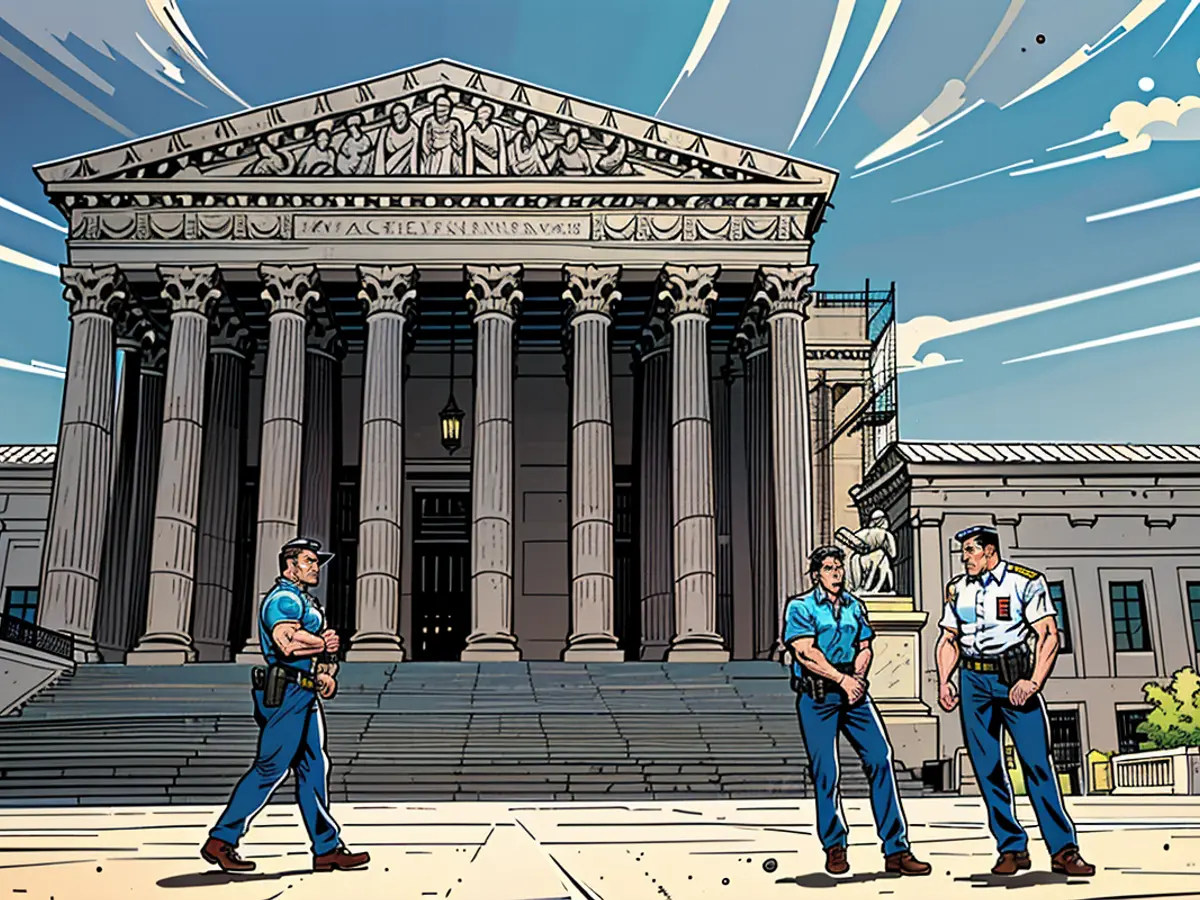Republicans ask Supreme Court to pause new EPA rules limiting planet-warming pollutants
The filing comes days after a federal appeals court in Washington, DC, turned down a similar emergency request from the officials and industry groups. They want the new rules shelved while their legal challenge plays out in federal courts.
The EPA’s new rules will compel existing coal and new natural gas power plants to either cut or capture 90% of their climate pollution by 2032. The rules are expected to reduce the carbon dioxide emissions from the sector by 75% compared to a peak in 2005.
In their filing with the Supreme Court, the challengers said the EPA rules would be too costly for power plants and could force them to close. They told the court that the EPA rules relied on “inadequately demonstrated technologies on unworkable timeframes, effectively squeezing plants into retirement.”
It’s likely that the court will ask the agency to respond to the states’ emergency request before it takes substantive action on it.
CNN has reached out to the EPA for comment.
In a 2022 ruling, the Supreme Court curbed the EPA’s power to regulate pollution from power plants but did not entirely take away the agency’s authority to do so. In crafting the most recent power plant rules, which were finalized earlier this spring, the EPA tried to hew as close to the law as possible, anticipating legal challenges.
The Biden administration’s proposal would push utilities to outfit many power plants with costly carbon capture technology or add clean hydrogen fuel to reduce their emissions. The rules are being paired with generous tax subsidies for carbon capture and hydrogen in Biden’s climate law.
“Our position remains the same: this rule strips the states of important discretion while using technologies that don’t work in the real world,” West Virginia Attorney General Patrick Morrisey, one of the leaders of the lawsuit, said in a statement Tuesday.
After the significant court challenge to Obama-era rules prevailed at the Supreme Court in 2022, the new regulations give power generators options to choose how they meet pollution requirements.
The EPA also announced in February it would delay its rulemaking process for carbon emissions from existing gas plants, which had initially been covered under the agency’s proposal last year.
The legal challenge against the EPA's new rules is rooted in politics, with the challengers arguing that the rules are too costly and rely on unfeasible technologies. This dispute in the political realm could shape the future of climate pollution regulations in the power sector.
The Supreme Court's decision on this case has significant political implications, as it could set a precedent for the EPA's authority to regulate pollution from power plants in the future.








